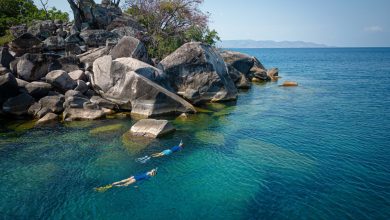Neighbours’ tourism earnings show us it can be done
Ernie Lindsey, an American novelist whose novel Sara’s Game became a USA Today and Amazon Kindle bestseller, is credited with the quote “Numbers don’t lie, people do”.
I was drawn to reflect on this quotation upon seeing World Tourism Council data showing revenues that Malawi and her neighbours generated in 2023 from international tourist visits. The gap is so wide, I must say.
During the year under review, Zimbabwe reaped $215.1 million (an equivalent of K377 billion), Zambia generated a staggering $901 million (about K1.6 trillion) and Mozambique raked in $327 million (about K573 billion) while Malawi had a paltry $35.5 million (about K62 billion).
In 2024, Malawi is projected to get $42.9 million (about K75 billion), a 20.7 percent jump, but still a far cry from the neighbours.
Why do we fail to attract more tourists and favourably compete with regional neighbours such as Zambia, Tanzania, Mozambique, South Africa, Zimbabwe and others?
What is it that is drawing more Malawians and other international tourists to sample tourist attractions in Zanzibar, Livingstone in Zambia or Victoria Falls in Zimbabwe and Cape Town in South Africa during festive holidays?
I recall asking the same questions in one of my World Tourism Day entries and stating that honest responses to these questions can give us a starting point on what needs to be done to leverage tourism as the game-changer it is always touted to be.
Minister of Tourism Vera Kamtukule, in an interview with The Nation Business News yesterday said tourism is slowly recovering from the Covid-19 knock and taking up its space with contribution to the gross domestic product growing to about seven percent.
The minister rightly attributed the positive strides to initiatives, including lifting of visa requirements in February this year for visitors from 70 countries, including the United Kingdom, China, Russia and Southern African Development Community as well as Common Market for Eastern and Southern Africa states.
The 2024 Africa Visa Openness Index has since ranked Malawi on position 22 from 25 in 2019 out of 54 economies.
Figures show that global tourist travels are growing with 1.5 billion in 2022 out of which five percent visited Africa and 60 percent of them sampled the sub-Saharan Africa. However, of those that visited sub-Saharan Africa, at least 60 out of every 100 visited South Africa while Malawi got three out of 100.
If the revenue figures from tourism are anything to go by, one can see that the sector could be the magic wand from which the country needs to generate more foreign exchange for its import bill.
Picture this: Malawi needs $600 million (about K942.6 billion) annually to bring in fuel, but generates just around $1 billion (K1.75 trillion) in forex every year. In total, the country needs $3 billion (about K5.2 trillion) to meet its import requirements.
Tobacco is Malawi’s main contributor in the foreign exchange basket. Its contribution is rated at 60 percent yet in the 2024 tobacco marketing season, the green gold’s revenue was at $395 million (K691 billion) while in 2023 it was $282 million (about K493.7 billion).
From the figures, one can see that Zambia’s tourism revenue is almost three times our tobacco earnings.
My take is that if our neighbours, with more or less the same natural resources like ours, are minting gold from tourism, we can also do the same if we do certain things right.
In fact, in the fresh water Lake Malawi, we have a huge advantage if it can be backed with some infrastructure development, especially access roads, airports and attractive tourism products that can be well packaged.
In one of his Facebook posts a couple of years ago, Zimbabwean billionaire businessperson and philanthropist Strive Masiyiwa shared a reflection on the untapped potential that is in Lake Malawi.
He wrote: “Reflection: Many years ago, I was at a business conference in Germany, when I found myself speaking casually to one of the most brilliant industrialists of his generation, Juergen Schrempp, who ran Mercedes Benz.
“On realising that he had travelled in Africa, I asked him what was the most interesting [business] opportunity he had seen: ‘Lake Malawi’, he replied without hesitation, before adding: ‘What an amazing asset. They [Malawi] should be earning hundred billion [dollars I assume] a year from it already. It has nothing to do with any minerals.’ He said it with such passion, and then left. I was deeply troubled in my spirit, as I wondered what he had seen.” Tourism is a low hanging fruit for a country endowed with natural tourist attraction places that just demand good enablers.



